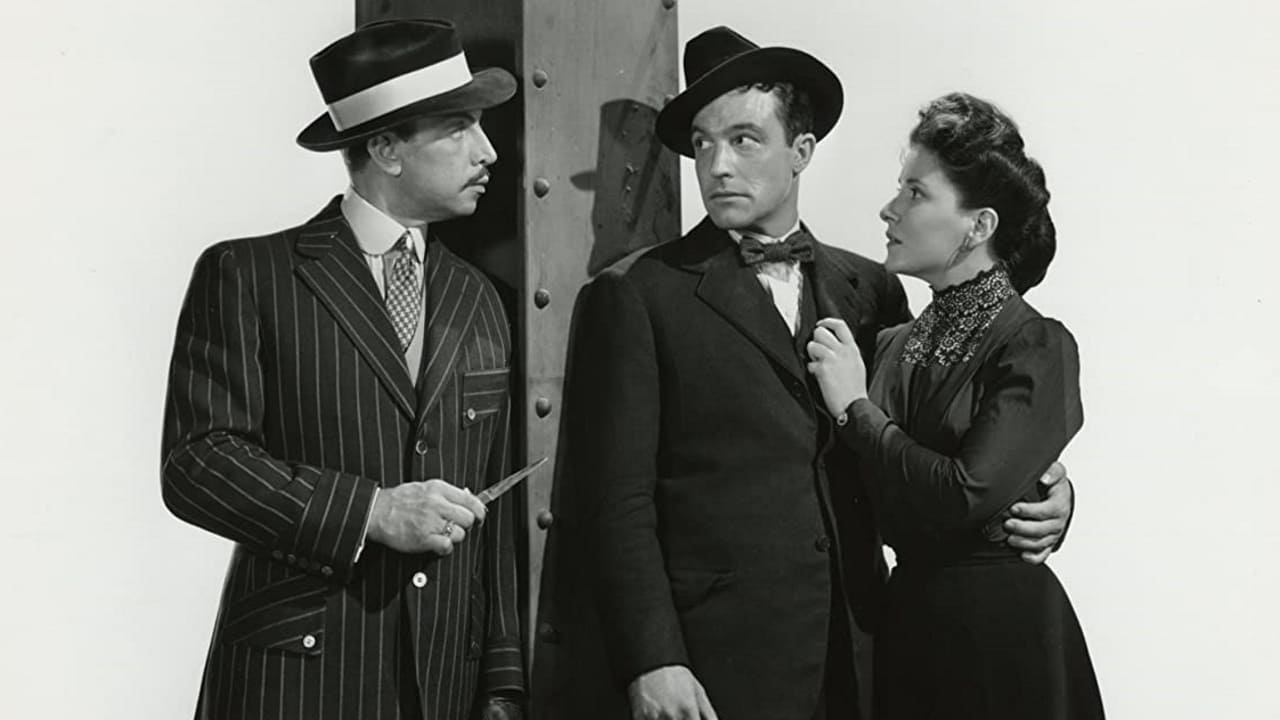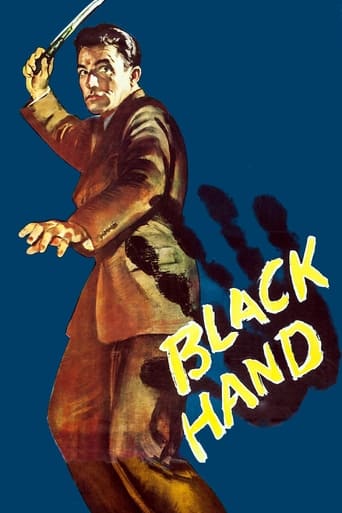

Self-important, over-dramatic, uninspired.
... View MoreBrilliant and touching
... View MoreIt’s fine. It's literally the definition of a fine movie. You’ve seen it before, you know every beat and outcome before the characters even do. Only question is how much escapism you’re looking for.
... View MoreThis is a dark and sometimes deeply uncomfortable drama
... View MoreSandwiched between On the Town and Summer Stock, this film represented a radical change of vehicle for Gene Kelly. According to MGM's publicity, he requested the role himself. As it turned out, it did his career no harm. In tact, it boosted his macho image and was surprisingly successful at the box office, returning a handsome dividend for a modest investment.Apart from the dialogue scenes, it is difficult to credit the film to director Richard Thorpe, as the action footage is brilliant in every way. The script is exciting too (we like the character of the bodyguard assigned to Naish), although it is not as well constructed as the later version, Pay Or Die (which starred Ernest Borgnine in the Naish role). For this one, MGM's art department have constructed some marvelous sets, which are superbly lit by cinematographer Paul C. Vogel. The performances are also better than we might expect. Kelly is capable enough in a fight and reasonably convincing as an Italian. J. Carroll Naish plays without his usual hammy mannerisms and Teresa Celli is also impressive in what transpired to be her first and only starring role. She made her film debut as the Mexican wife in Border Incident, and subsequently appeared in Nancy Goes to Rio, The Asphalt Jungle, Crisis, Right Cross and The Great Caruso after which she disappeared briefly into TV. Black Hand also marks the only film appearance of stage actress Eleonora Mendelssohn, a former star for producer Max Reinhardt in Berlin and a great-great-granddaughter of composer Felix Mendelssohn.All in all, suspenseful, well-produced entertainment. (Even Bosley Crowther agrees with us.) The whole idea doesn't sound all that appealing or even workable, but MGM have brought it off with honors.
... View MoreBlack Hand came about when Gene Kelly asked Louis B. Mayer for a change of pace from his musical films. According to the Citadel film series book The Films Of Gene Kelly, Mayer was inclined to give it to him because Kelly was coming off big hits like On The Town and Take Me Out To The Ballgame and Summer Stock, all of which more than returned their money. Without Kelly's name Black Hand would have been a nice, but routine gangster film set in Little Italy in the ragtime years of the last century. It came from MGM's B picture unit so a whole lot of money wasn't spent on it.Kelly plays a young kid who saw his father stand up to the Black Hand in America and be killed for it. The father was a lawyer in the old country and Kelly had the same ambition. When he grows up he returns to America with the burning ambition to find out who is extorting the immigrants in America and take them down. Having that same ambition is police lieutenant J. Carrol Naish who Kelly joins forces with.Although Kelly gets star billing, it's really Naish that carries the film although he's killed three quarters of the way into the story. His character is based on the real life Lieutenant Joseph Petrosino who had a biographical film of his own ten years later in Pay Or Die where Ernest Borgnine starred. Naish was Hollywood's all purpose ethnic, good at every kind of nationality with every dialect you can imagine.Oddly enough Kelly really has no handle on how to deal with the Black Hand, they're beating him up and besting him at every turn until the very end when a stroke of luck that nearly kills him causes the tables to be turned. But you have to watch the film to see exactly what.Black Hand was a decent routine costume noir for lack of a better term as it is not set in the present day. It certainly did Kelly's career no harm as he got good reviews for the part.
... View MoreThis film is a curiosity because of the casting of the main role, Johnny Columbo, played by Gene Kelly, an talented actor better known for his contribution to musicals, and for direction. A seldom film these days, "Black Hand", is at best a crime picture about the turn of the century mafia groups that preyed on decent folks eking a life in their adopted country.Directed by Richard Thorpe, and with a screen play by Luther Davis, the picture presents an urban drama in which a powerful organized machinery wrecks havoc among Italians. Johnny Columbo had seen his own father killed a the hand of a criminal element that had a lot of power and seeks to avenge his father, as well as to expose the bandits that controlled the extortion and crime.Gene Kelly does what he could in a role that asked a lot of him in a dramatic way. J. Carrol Naish, a wonderful character actor, is seen as Louis Lorelli, a police detective who wants to help the community, only to become a target for the mafiosi that wanted him out of the picture."Black Hand" offers a glimpse of the mafia in action during those early days.
... View MoreBeing a big fan of crime/gangster/mafia movies the Black Hand title really got my attention.Having never watched a musical from beginning to end it was a downer to see the main star was Gene Kelly.Gene Kelly? The singing in the rain person?That much about him is known to me only because of his exhibit at the movie land wax museum in Buena Park.He's OK in this movie,J.C.Naish is better but the production gives the most entertainment.The Italian neighborhood street scenes do give the viewer the impression that's actually what they are seeing.Many of the lesser players are Italien and are used well to portray an Italien community.A favorite scene is the run down bar where poor hard working men go to have a drink and sing,the private conversation between Johnny Colombo(Kelly) and the bartender there seems so realistic.The overall dark look of this movie reminds of the TV show "the untouchables" which I enjoyed very much,this movie is a notch above that show. The first killing in the movie is such a surprise I wouldn't want to give away any part of it. There may not be one real strong performance in the movie but many small quality contributions come together to be entertaining.Amongst all the beautiful Italian language and culture there is a scene in an Italien home where an adult reminds a child to speak English.In another movie a similar scene was repeated.Although not Italien I find it strange to treat the speaking of that language as doing something wrong,it seems to be a reflection of life.Sometimes I speak or listen to more than five languages a day but no Italien,such a sad lose.
... View More